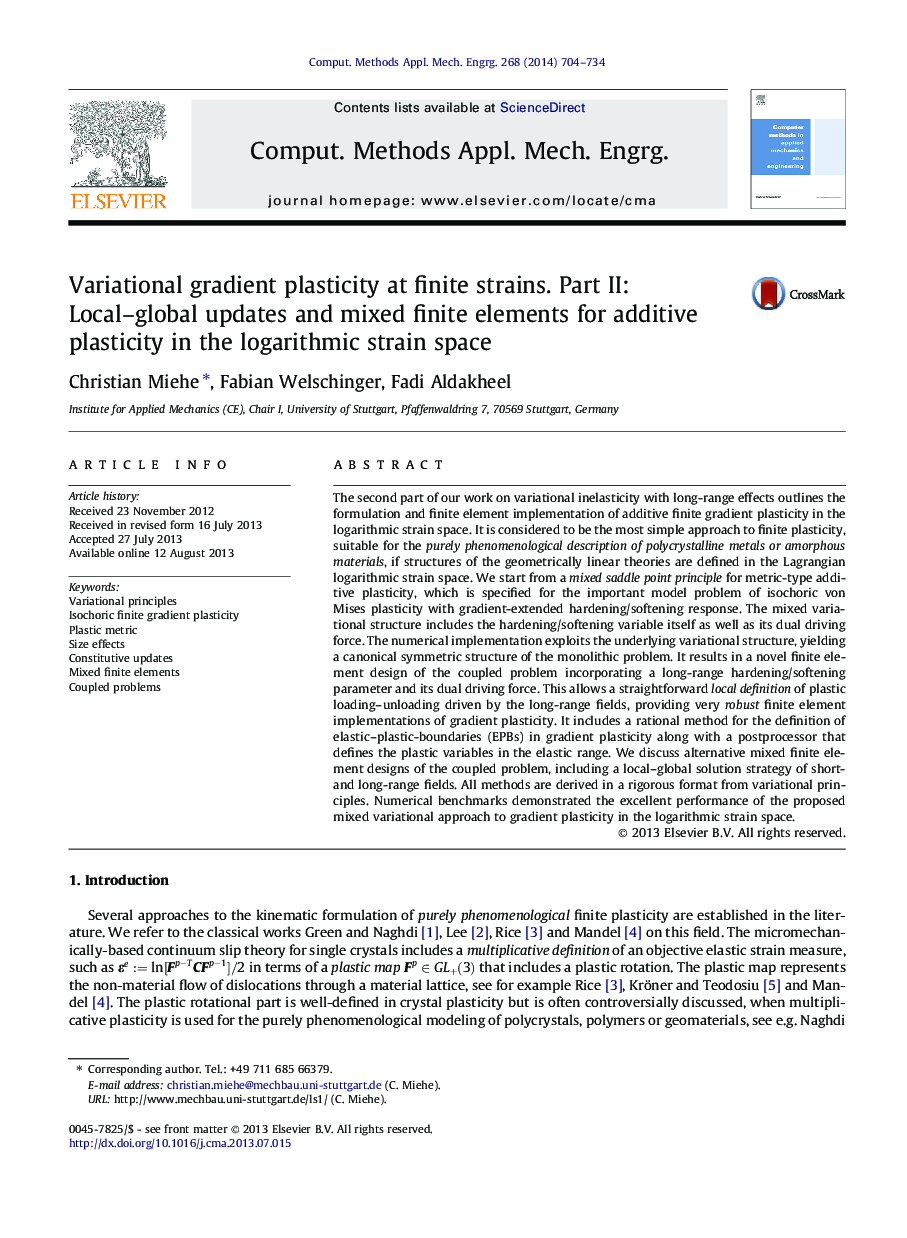| Article ID | Journal | Published Year | Pages | File Type |
|---|---|---|---|---|
| 498058 | Computer Methods in Applied Mechanics and Engineering | 2014 | 31 Pages |
The second part of our work on variational inelasticity with long-range effects outlines the formulation and finite element implementation of additive finite gradient plasticity in the logarithmic strain space. It is considered to be the most simple approach to finite plasticity, suitable for the purely phenomenological description of polycrystalline metals or amorphous materials, if structures of the geometrically linear theories are defined in the Lagrangian logarithmic strain space. We start from a mixed saddle point principle for metric-type additive plasticity, which is specified for the important model problem of isochoric von Mises plasticity with gradient-extended hardening/softening response. The mixed variational structure includes the hardening/softening variable itself as well as its dual driving force. The numerical implementation exploits the underlying variational structure, yielding a canonical symmetric structure of the monolithic problem. It results in a novel finite element design of the coupled problem incorporating a long-range hardening/softening parameter and its dual driving force. This allows a straightforward local definition of plastic loading–unloading driven by the long-range fields, providing very robust finite element implementations of gradient plasticity. It includes a rational method for the definition of elastic–plastic-boundaries (EPBs) in gradient plasticity along with a postprocessor that defines the plastic variables in the elastic range. We discuss alternative mixed finite element designs of the coupled problem, including a local–global solution strategy of short-and long-range fields. All methods are derived in a rigorous format from variational principles. Numerical benchmarks demonstrated the excellent performance of the proposed mixed variational approach to gradient plasticity in the logarithmic strain space.
